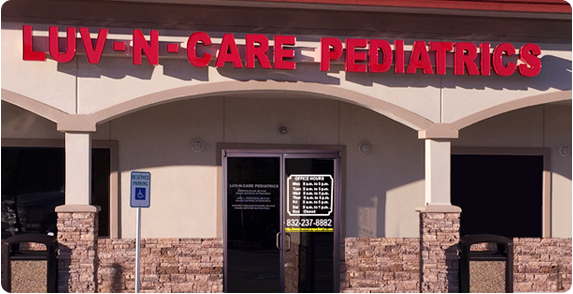|
|
|
Gastroenteritis |
What is viral gastroenteritis?
Gastroenteritis means inflammation of the stomach and small and large intestines. Viral gastroenteritis is an infection caused by a variety of viruses that results in vomiting or diarrhea or both. It is often called the "stomach flu," although it is not caused by the influenza viruses.
What causes viral gastroenteritis?
Many different viruses can cause gastroenteritis, including rotaviruses, noroviruses, adenoviruses, type 40 or 41, sapoviruses, and astroviruses. Viral gastroenteritis is not caused by bacteria (such as Salmonella or Escherichia coli) or parasites (such as Giardia), or by medications or other medical conditions, although the symptoms may be similar. Your doctor can determine if the diarrhea is caused by a virus or by something else.
What are the symptoms of viral gastroenteritis?
The main symptoms of viral gastroenteritis are watery diarrhea and vomiting although one or the other symptom may predominate. The affected person may also have headache, fever, and abdominal cramps ("stomach ache"). In general, the symptoms begin 1 to 2 days following infection with a virus that causes gastroenteritis and may last for 1 to 10 days, depending on which virus causes the illness; however, most episodes last from 1-3 days.
Is viral gastroenteritis a serious illness?
For most people, it is not. People who get viral gastroenteritis almost always recover completely without any long-term problems. Gastroenteritis is a serious illness, however, for persons who are unable to drink enough fluids to replace what they lose through vomiting or diarrhea. Infants, young children, and persons who are unable to care for themselves, such as the disabled or elderly, are at risk for dehydration from loss of fluids. Immune compromised persons are at risk for dehydration because they may get a more serious illness, with greater vomiting or diarrhea. They may need to be hospitalized for treatment to correct or prevent dehydration.
Is the illness contagious? How are these viruses spread?
Yes, viral gastroenteritis is contagious. Outbreaks (in which many people are affected) occur primarily from eating or drinking contaminated foods or beverages. The viruses that cause gastroenteritis also are spread through close contact with infected persons through contamination with stool or vomitus.
How does food get contaminated by gastroenteritis viruses?
Food may be contaminated by food preparers or handlers who have viral gastroenteritis, especially if they do not wash their hands regularly after using the bathroom. Shellfish may be contaminated by sewage, and persons who eat raw or undercooked shellfish harvested from contaminated waters may get diarrhea. Drinking water can also be contaminated by sewage and be a source of spread of these viruses.
How is viral gastroenteritis treated?
The most important of treating viral gastroenteritis in children and adults is to prevent severe loss of fluids (dehydration). This treatment should begin at home. Your physician may give you specific instructions about what kinds of fluid to give. CDC recommends that families with infants and young children keep a supply of oral rehydration solution (ORS) at home at all times and use the solution when diarrhea first occurs in the child.
ORS is available at pharmacies without a prescription. Follow the written directions on the ORS package, and use clean or boiled water. Medications, including antibiotics (which have no effect on viruses) and other treatments, should be avoided unless specifically recommended by a physician.
Can viral gastroenteritis be prevented?
Persons can reduce their chance of getting infected by frequent handwashing, prompt disinfection of contaminated surfaces with household chlorine bleach-based cleaners, and prompt washing of soiled articles of clothing. If food or water is thought to be contaminated, it should be avoided. Immunity to noroviruses is short-term, lasting only a few months, so it is possible to be reinfected.
To complicate matters more, however, some individuals presumably immune because of high levels of antibodies to the norovirus may still be susceptible to infection. Since there are many strains of noroviruses and immunity is specific for each strain, it is possible to have an episode of gastroenteritis immediately after another if the infecting strains are different; however, this probably occurs infrequently. Overall, the status of immunity to the viruses causing gastroenteritis--particularly as it relates to susceptibility to infection--is incomplete |
|
|
|









